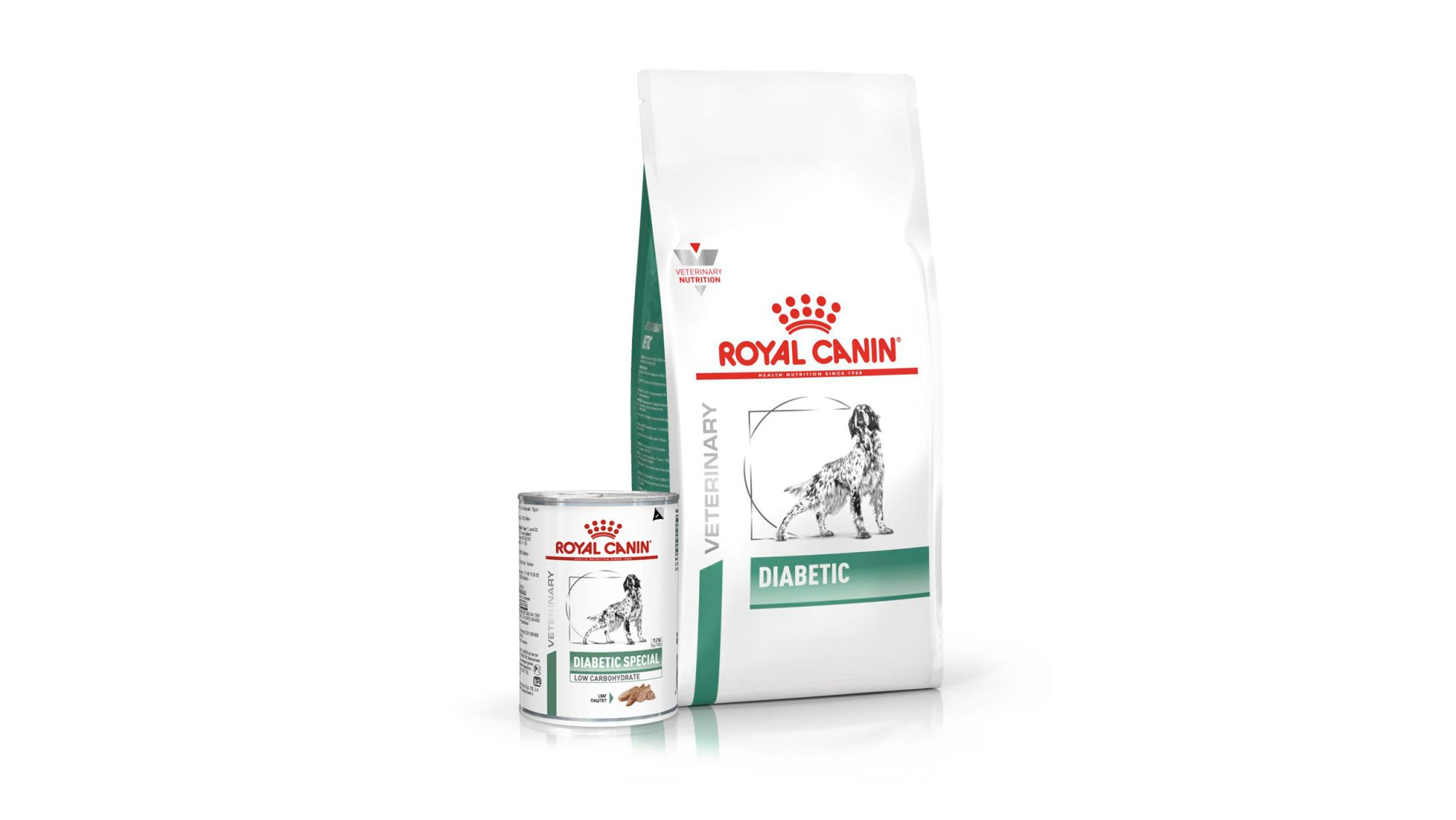
Diabetes Mellitus support for dogs
Precise, veterinarian-recommended nutrition for diabetes and ideal weight in dogs.

What is Diabetes?
Diabetes, also called Diabetes Mellitus, is a hormonal disease. In healthy pets the pancreas, which is an organ located close to the stomach and the intestine, is producing a hormone called insulin. The main role of insulin is to regulate the glucose (sugar) level int he blood. Pets suffering with diabetes do not have enough insulin to regulate their blood glucose, resulting in abnormally high blood glucose levels. This is associated with various consequences including weight loss or weight gain, increased appetite and increased thirst.

How is Diabetes diagnosed?
The first suspicion of diabetes is raised by clinical signs. If your pet shows increased appetite and increased thirst, associated with a variable body weight, your vet may recommend some diagnostic tests. Diabetes mellitus can be diagnosed by detecting glucose in the urine, measuring blood glucose through the day, and/or by measuring specific markers in the blood (for example fructosamine). Once a definitive diagnosis is achieved, your veterinarian will usually discuss treatment options for your pet. Additional tests such as imaging (radiographs, ultrasound...) may be done should your pet’s diabetes prove challenging to control with standard treatment.
Did you know?
In dogs, diabetes resembles the human condition Diabetes type 1. The pancreas does not produce enough insulin due to several possible factors including inflammation as well as immune-mediated disease of the pancreas, genetic predisposition and environmental triggers.

Diabetic dogs are managed with a balanced combination of:
- Insulin treatment, mostly given by injection twice a day. It may take a few weeks for your veterinarian and you to find the adequate type and dose of insulin for your pet
- Regular activity, consistent exercise can make management of diabetes easier and is encouraged
- Adapted diet - After consulting with your veterinarian, they may recommend a diet with high protein content and a special fibre blend to help stabilise glucose levels and high palatability to encourage adequate food intake at mealtime.
Featured Products

A lifetime of health
Expert advice on how to provide the best care for your dog at every stage of life.